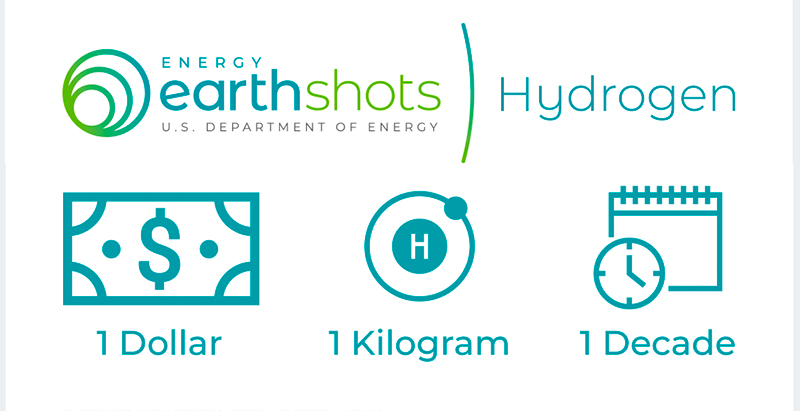A Bold Step for Clean Energy
The U.S. Department of Energy (DOE) has committed nearly $60 million towards advancing clean hydrogen technologies1. Announced on May 22, 2023; this investment aims to reduce reliance on fossil fuels, deliver cleaner air, and create high-quality jobs. Firstly, it strides towards achieving President Biden’s Investing in America agenda. Secondly, it aims for a 100% clean electrical grid by 2035 and net-zero carbon emissions by 20502.
Empowering Decarbonization with Hydrogen
Clean hydrogen, produced with little to no carbon emissions, can leverage various clean energy resources. Particularly with carbon capture, including renewables, nuclear, and fossil resources. Likewise, it supports the expansion of clean electricity. Consequently, it provides long-duration energy storage, flexibility, and multiple revenue streams for all clean power generation 3 types.
Delivering High-Quality Jobs
States like Connecticut are leading the charge in the growing use of hydrogen. Universities like Yale receive funding to advance the DOE’s Hydrogen Shot goals. Besides, as a result, this initiative will create well-paying engineering, manufacturing, sales, and service jobs, leading to a brighter, more sustainable future4.
Advanced Solar Water Splitting
One of the promising developments is the use of advanced solar water-splitting technology. This technology aims to scale up renewable hydrogen fuel production, fostering the growth of domestic supply chains for next-generation energy production and creating good-paying jobs for future generations of American workers5.
Hydrogen Projects on the Horizon
The 22 projects announced will develop technologies for solar fuels, higher-density hydrogen storage, lower costs of hydrogen fuel cells for transportation applications, and improve hydrogen-emissions detection. Additionally, these efforts will supplement DOE’s work on hydrogen leakage and advance the broader field of detection and monitoring technologies6.
The Hydrogen Shot Goal
These projects will be managed by DOE’s Hydrogen and Fuel Cell Technologies Office (HFTO). They will advance DOE’s Hydrogen Shot goal of reducing the cost of clean hydrogen to 1 dollar per 1 kilogram in 1 decade (“1-1-1”) and support DOE’s H2@Scale initiative.
National University Research Consortium
Stanford University will lead a consortium of universities in Mexico and Canada, including seven Minority Serving Institutions, to decarbonize and improve the resiliency of the electric power system. Moreover, the consortium will help states, tribes, and regions develop the data, modeling tools, workforce, and methods needed to implement programs to improve grid resiliency and establish decarbonization goals.
In conclusion, the DOE National Clean Hydrogen Strategy and Roadmap, supported by the DOE Hydrogen Program, underpins these efforts, striving to address the climate crisis and deliver a clean and equitable energy future for all.
Link of interest: Clean hydrogen technologies funding to accelerate the transition


